第18章 Conclusion(4)
Your second landscape is turned into a vegetable person, and you give its portrait with many touches of marvel and mystery in vegetable life.Your third landscape takes for an instant the form and tragic state of King Lear; you thus make it seize on our sympathies as if it were a real person, and you then restore it to the inanimate, and contemplate its possible beneficence in the distant future."A comparison of the first draft of `Corn', as sent Judge Bleckley, with the final form shows that Lanier made many minute changes in the poem, especially in the earlier part.Still this earlier draft agrees substantially with the later, and was so fine in conception and execution as to call forth this commendation of Judge Bleckley, which, despite the shortcomings of `Corn', may with greater justice be applied to the poem in its present form: "As an artist you seem to be Italian in the first two pictures, and Dutch or Flemish in the latter two.
In your Italian vein you paint with the utmost delicacy and finish.
The drawing is scrupulously correct and the color soft and harmonious.
When you paint in Dutch or Flemish you are clear and strong, but sometimes hard.There is less idealization and more of the realistic element -- your SOLIDS predominate over your fluids."As already stated, Lanier has two other poems that indirectly treat the theme of `Corn', namely, `Thar's More in the Man' and `Jones's Private Argyment'.
Moreover, he has `The Waving of the Corn', which, though charming, is neither so elaborate nor artistic as `Corn'.
Among poems on corn by other writers may be mentioned the following:
1.Whittier's `The Corn-song' (before 1872), a poem of praise and thanksgiving at the end of `The Huskers', which tells of the gathering of the corn and of the "corn-husking", known in the South as the "corn-shucking".
2.Woolson's (Constance F.) `Corn Fields', a description of Ohio fields, in `Harper's Monthly', 45, 444, Aug., 1872.
3.Thompson's (Maurice) `Dropping Corn' (1877), a dainty love lyric, in `Poems' (Boston, 1892), p.78.
4.Cromwell's (S.C.) `Corn-shucking Song', a dialect poem, in `Harper', 69, 807, Oct., 1884.
5.Coleman's (C.W.) `Corn', in `The Atlantic Monthly', 70, 228, Aug., 1892, which, since it consists of but four lines and is more like Lanier's poem than are the others, may be quoted:
"Drawn up in serried ranks across the fields That, as we gaze, seem ever to increase, With tasseled flags and sun-emblazoned shields, The glorious army of earth's perfect peace."6.Hayne's (W.H.) `Amid the Corn', a charming account of the denizens of the corn-fields, in his `Sylvan Lyrics' (New York, 1893), p.12.
7.Dumas's (W.T.) `Corn-shucking' and `The Last Ear of Corn', both life-like pictures of plantation life, in his `The Golden Day and Miscellaneous Poems' (Phila., 1893).
Other interesting articles are: `Mondamin, or the Origin of Indian Corn', in `The Southern Literary Messenger' (Richmond, Va.), 29, 12-13, July, 1859;`A Georgia Corn-shucking', by D.C.Barrow, Jr., in `The Century Magazine'
(New York), 2, 873-878, Oct., 1882; and `Old American Customs: A Corn-party', an account of a corn-husking in New York, in `The Saturday Review' (London), 66, 237-238, Aug.25, 1888.
4-9.See `Introduction', p.xxxii [Part III], and compare `The Symphony', ll.183-190.
18.Paul Hamilton Hayne, whose love of nature rivals Lanier's, has an interesting poem entitled `Muscadines' (`Poems', Boston, 1882, pp.222-224).
21.Compare `The Symphony', l.117 ff.
57.See `Introduction', p.l [Part V].
125.In her introductory note to `Corn' Mrs.Lanier thus localizes the poem:
"His `fieldward-faring eyes took harvest' `among the stately corn-ranks,'
in a portion of middle Georgia sixty miles to the north of Macon.
It is a high tract of country from which one looks across the lower reaches to the distant Blue Ridge Mountains, whose wholesome breath, all unobstructed, here blends with the woods-odors of the beech, the hickory, and the muscadine: a part of a range recalled elsewhere by Mr.Lanier as `that ample stretch of generous soil, where the Appalachian ruggednesses calm themselves into pleasant hills before dying quite away into the sea-board levels' -- where `a man can find such temperances of heaven and earth -- enough of struggle with nature to draw out manhood, with enough of bounty to sanction the struggle --that a more exquisite co-adaptation of all blessed circumstances for man's life need not be sought.'"140.See `Jason' in any Dictionary of Mythology.
Gayley's `The Classic Myths in English Literature' (Boston, Ginn & Co.)is an excellent book.
157.`Dives': See Appendix to Webster's `International Dictionary'.
168.`Future Sale' -- sale for future delivery.
185-6.See Shakespeare's `King Lear'.
My SpringsIn the heart of the Hills of Life, I know [1]
Two springs that with unbroken flow Forever pour their lucent streams Into my soul's far Lake of Dreams.
Not larger than two eyes, they lie Beneath the many-changing sky And mirror all of life and time, -- Serene and dainty pantomime.
Shot through with lights of stars and dawns, And shadowed sweet by ferns and fawns, -- Thus heaven and earth together vie [11]
Their shining depths to sanctify.
Always when the large Form of Love Is hid by storms that rage above, I gaze in my two springs and see Love in his very verity.
Always when Faith with stifling stress Of grief hath died in bitterness, I gaze in my two springs and see A Faith that smiles immortally.
Always when Charity and Hope, [21]
In darkness bounden, feebly grope, I gaze in my two springs and see A Light that sets my captives free.
Always, when Art on perverse wing Flies where I cannot hear him sing, I gaze in my two springs and see A charm that brings him back to me.
When Labor faints, and Glory fails, And coy Reward in sighs exhales, I gaze in my two springs and see [31]
Attainment full and heavenly.